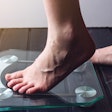The California Dental Association (CDA) is asking its members to offer children free "assessments", because so many of the state's kids aren't getting good dental care.
This month, Children Now, a children's advocacy group, gave the state a grade of C- for oral health. And last year, the state began requiring parents to take their kids to the dentist -- or explain the reason why.
"Out of 25 states surveyed, only Arkansas ranked below California in children's oral health," said Gayle Mathe, a spokesperson for the California Dental Association, citing a 2006 report by the Dental Health Association.
For example, 70.1% of California children have tooth decay, and 28.7% have untreated decay, according to the report.
To focus attention on the problem, the state Legislature passed a law, requiring parents to take their kids to the dentist or explain why they didn't. The law, which went into effect January 1, 2007, stirred "a lot of activity" in its first year, said Gayle Mathe, a spokesperson for the California Dental Association (CDA). "It generated a lot of phone calls to our office."
— Kelly Hardy, associate director for
health, Children Now
She notes that some other states, including Pennsylvania, Rhode Island, and Illinois, have similar programs in place, and that many others are considering them.
Under the law, parents of public school kids must submit a form by May 31 of the year after the child first enters the public school system. The first part of the form must be signed by a dentist or hygienist.
The second part of the form is a waiver that excuses parents for not getting the first part completed. Parents can simply check a box saying that they didn't want to take their kid to the dentist or a box saying that they couldn't find a dental office where their insurance was accepted. They are also asked to indicate which type of insurance or state benefit dentists rejected.
The legislation provided funds for schools to distribute the forms, collect them, and report the data. "We're trying to get specifics on barriers," Mathe said. Some hint of what the numbers might reveal can be found in the 2006 Dental Health Association report, which stated that 16% of those surveyed had trouble getting access to care, primarily because of poverty or lack of insurance.
To help bridge that gap, the CDA is asking dentists to conduct the dental assessments for free for those patients who can't afford to pay. According to the organization's Web site, an "assessment" can fall short of a full examination. It's simply a matter of noting whether there are visible caries or fillings, or any problem that requires urgent treatment. The CDA says parents requesting an assessment -- rather than a standard examination -- should fill out a consent form, available on the organization's Web site, making it clear that their child didn't get thorough inspection.
But dentists shouldn't leave it at that. "You and your office staff have a unique opportunity to educate the parent on the importance of oral health and begin the process of establishing a dental home for this child," the CDA states on its Web site.
Kelly Hardy, associate director for health at Children Now, thinks cost isn't the only reason why kids aren't getting to the dentist: "I think there's a shortage," she said. "Some counties don't have any pediatric dentists."
While she applauds the new legislation as a "first step," she argues that more should be done, including more money for dental care and efforts to get even younger kids to the dentist.
In a separate report, Children Now cited a survey finding that 58 counties in California reported a shortage of dentists.
There is some good news, though. California children's teeth actually improved between 1994 and 2005, according to the Dental Health Foundation.
Copyright © 2008 DrBicuspid.com


















